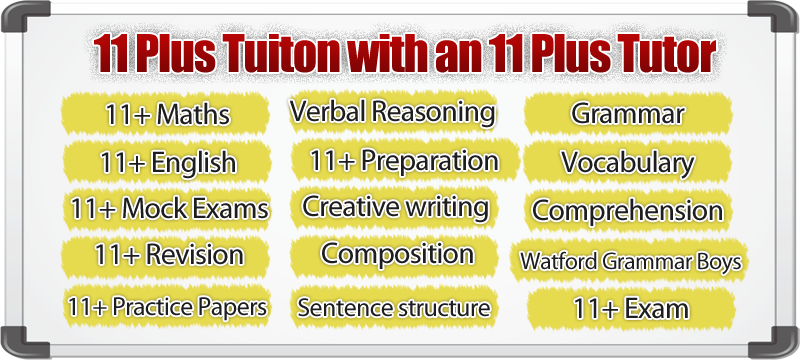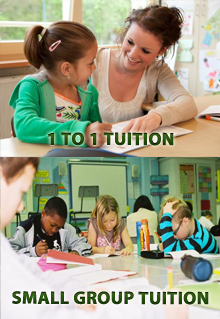Which Secondary School is right for your child?
Don't be unprepared for one of the most important decisions you make for your child

Secondary School Application
Children start secondary school in Year 7. You must begin the process of applying for a secondary school place when your child is in Year 6 at primary school. All applications for state schools should be made through your local authority's admissions scheme. On your application form you will be asked to list six schools, ranked in order of preference. It is strongly recommended that you use all six preferences Most schools give preference to applicants living withint their 'catchment area'. The admissions criteria is varied and is different for each school, so it is best to check the criteria for each school. Applying for only one school will not increase your chances of being offered a place at that school. If your child is not offered a place at the school of your first preference, they will be automatically placed on a waiting list.Choosing a Secondary School - Points to Consider
Before you decide on a short list of schools, think about your child's personality, strengths, weaknesses and needs. Word of Mouth. Ask around, especially parents of older children. Ask the teacher and headmaster of your child's primary school Schools' Websites. Check out the schools' websites and brochures. It will give you an idea of the activities, achievements and admission criteria of the schools. Ofted Reports. How old is the Ofted Report? What recommendations were made and have actions been taken to improve? Is it one of Oustanding Secondary Schools? Sometimes reputations can be out of date and a new head would have substantially improved matters League Tables. Look at the 5 A-C grade percentages as well as the value added and progress figures. Sometimes value added may be more important than grades Exam Results. Last three years' exam results and Leavers destinations. What percentage of pupils get A/A*s? How many go on to further education or apprenticeships - A levels, Universities? Which universities? Which apprenticeships? Go and visit at least three schools and find out how you actually feel about the schools.. Make sure that you take your child with you to see the schools,- Headmaster's Presentation. Listen to Headmaster's speech and learn about the school's values, discipline policy etc. Ask whether you are in the 'catchment area'
- Talk to Teachers. Are the teachers enthusiastic, knowledgeable, qualified? How do they engage with students? Do they know the names of students? How do they provide feedback to parents? Classroom sizes? Do new pupils have a buddy or mentor? Homework - how much, how often? Any extra help if children struggling? Any communication with parents if children struggling
- Talk to Students. What do they think of the school? Do they respect the teachers? Are they attentive to teachers and respond to their requests? How many mobile phones get nicked? How many pupils bunk off after lunchtime?Are they well spoken, with good manners, good behavior, smart appearance and kind.
- Tour of the School. Is the school clean and tidy? Visit the classrooms - are the wall displays rough around the edges? are the books torn and untidy? Are children taught in groups or tables arranged in rows - theatre style? Is the library used often? Check out science labs and IT rooms. What sports/music/drama facilities they offer? Do they run sports teams for all or just the first X11?
Year 5 & 6 Tuition Harrow
for Key Stage 2 Maths and English Whether it is grasping the concepts in Maths or understanding algebra, fractions, decimals or percentages or grammar rules in English or reading, writing, spelling, vocabulary, punctuation or developing creative writing skills or dealing with complex problem solving applications in SATs, 11+, and Key Stage 2, Harrow Tuition Centre have experienced Maths and English tutors who can help. Creative writing skills involve writing to inform, persuade, argue or analyse.- Fully qualified teachers with years of teaching experience
- Individual learning plan tailored for each pupil
- Small groups of 4-6 pupils so that every pupil gets individual attention
- Traditional face to face teaching by a teacher and not sitting infront of a computer
- Teaching in line with the National Curriculum
- Inspiring teachers who keep the children engaged and interested and get the best out of every child
- Friendly, informal atmosphere
- Proven track record of raising standards
- Covering all aspects of Maths and English in Year 5 & 6
- Exam preparations for SATs. 11+, and Key Stage 2
- High quality learning tools and resources
- No long terms contracts. Pay as you go
- Competitive and affordable rates
Request a free consultation Or Call us on 07511 393000 for a chat about how your child can benefit from the boost a professional Key Stage 2 tutor can provide
Free Consultation
Get Better Grades in Key Stage 2Fill in the form below to arrange a Free Consultation on how your child can improve in English and Maths



